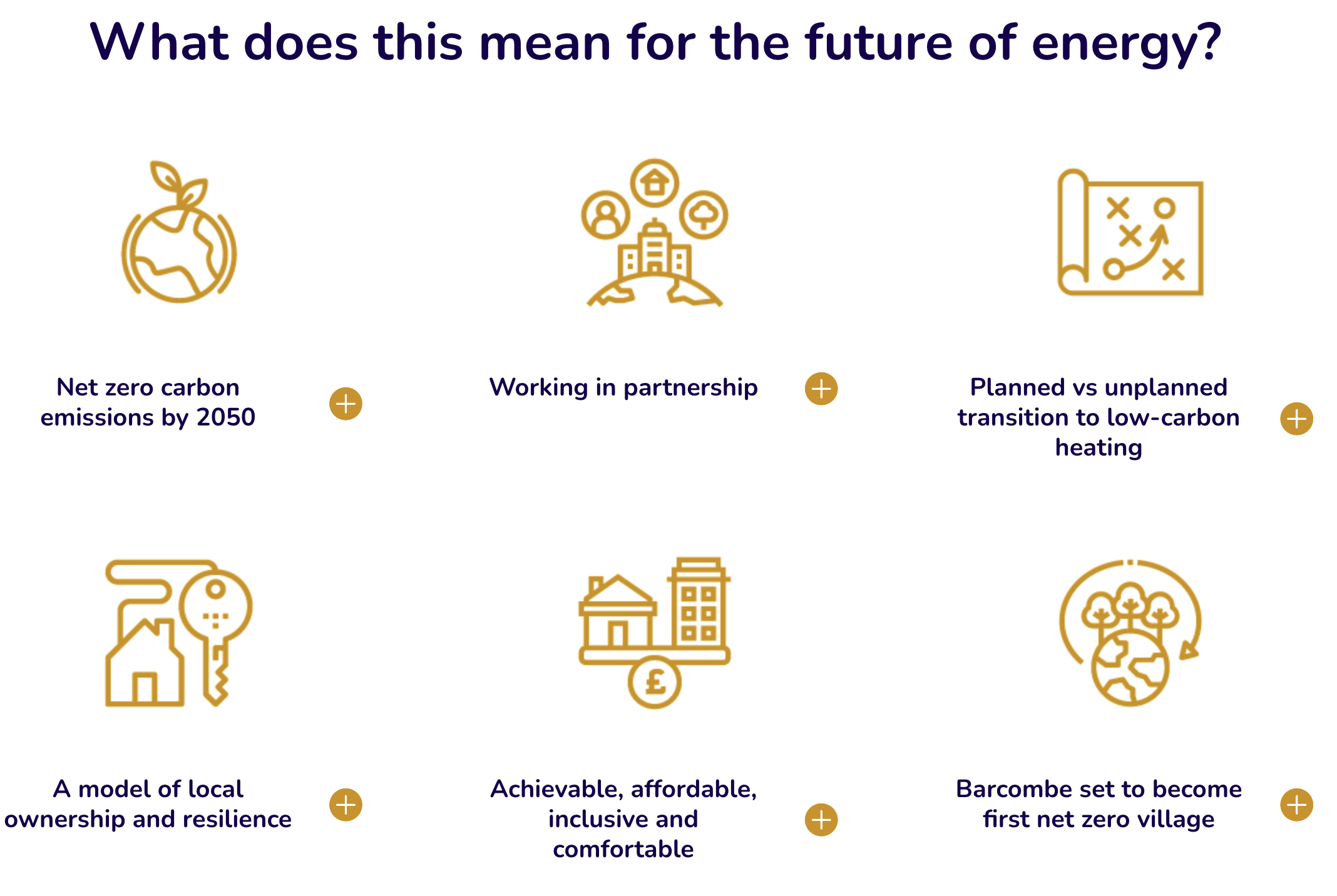Event Video – How to get your town or Village to Net Zero with community energy
Event summary – what we covered:
This event forms part of the Community Energy North Autumn webinar series run by the North West Net Hub and the North East and Yorkshire Net Zero Hub supported by Community Energy South and their Community Energy Pathways programme.
The recording can be viewed here
Helen Seagrave from Electricity North West and the Chair of Community Energy England kicked off the autumn webinar series which started with this webinar focusing in on ‘How to get your town and village to net zero’.
Kate Gilmartin set the scene with a 4 step approach of measuring your community energy baseline, followed by powering up, powering down and a plan going forward. The baseline will help your community develop the narrative and the needs case for decarbonisation. For the baseline Kate talked about the place based carbon calculator and the Impact Tool from Centre for Sustainable Energy. She highlighted that £2.5billion leaves the Lancashire Economy alone on fossil fuel domestic spend and really important to keep the money in the economy and to decarbonise. Community Wealth is vital to the community energy solutions and local action.
Kate talked about her work with Chipping and Rossendale Valley Community Energy where they are developing Community Scale low carbon heat projects. She went on to talk about car clubs and their benefits such as at Derwent valley Car Club.
Kate’s Carrot, Stick and Sermon Approach
Think about your narrative for your community using Carrot (energy bills are at a high), Stick (renewable energy) Sermon (the Climate Emergency).
Sarah Wiltshire is from Action on Climate Emergency (ACE) Settle and Area and talked about their local energy plan. Settle is 20 miles from Skipton and Lancaster, located partly in the Yorkshire Dales National Park and straddles the areas of two direct network operators Energy North West and Northern Power Grid. The Market Town of Settle has 2000 residents and acts as hub to the local rural community of small villages.
ACE Settle was established in 2019 and now has 58 active paid up members and 130 on the mailing list. The group runs a monthly green cafe and other events, has regular articles in local media and is active on social media and liaises with other community groups, local councils and politicians. The group has 4 themed working groups on Energy, Transport, Food and Biodiversity. ACE is also an active member of Settle Town Council’s Climate and Biodiversity Group and the North Yorkshire Climate Coalition.
The ACE Energy Group has been working over the last year to build community support and identify the elements to a Local Area Energy Plan focused upon powering up local renewable energy supply with solar, hydro and wind projects. With support from the NE Net Zero Hub and Community Energy South the group will now be progressing its plans with feasibility studies and identifying funding options. The first project will be to set-up a local energy club through Energy Local CIC to link owners of large roofs housing solar panels with home owners to create a local energy market.
Nicki Myers from OVESCO They are developing a bespoke plan for a community to get villages off oil. OVESCO’s vision is to achieve 100% of local needs to be generated by renewable energy. Nicki leads on the CommuniHeat programme and described the OVESCO Kickstart programme that helps a rural community develop a village energy plan taking into account housing architypes and heat solutions for homes. The programme brings together the local suppliers with the community and helps the communities develop their own energy plans. You can see this through OVESCO’s CommuniHeat site and also look at the village of Littlebury who have followed suit.
Nicki explained that the CommuniHeat project develops a plan for a community to decarbonise but also adds in the impact on the local electricity grid. In this case UK Power Networks is a partner on the scheme along with engineering firm Buro Happold who have developed a digital twin of the community. What this will lead to is firstly the community to make informed retrofit choices with the local supply chain but also in the long run it will allow the Innovation Teams at UK Power Networks to look at future of local supply and balancing which will hopefully give long term solutions to reduce the cost of household electricity.
The resulting conversation talked a lot about ideas and how community groups can access funding for feasibility studies. We talked about the Shared Prosperity Fund and talking to local councils but also keeping an eye on Community Energy England who’s newsletter raises funding opportunities for community energy.

